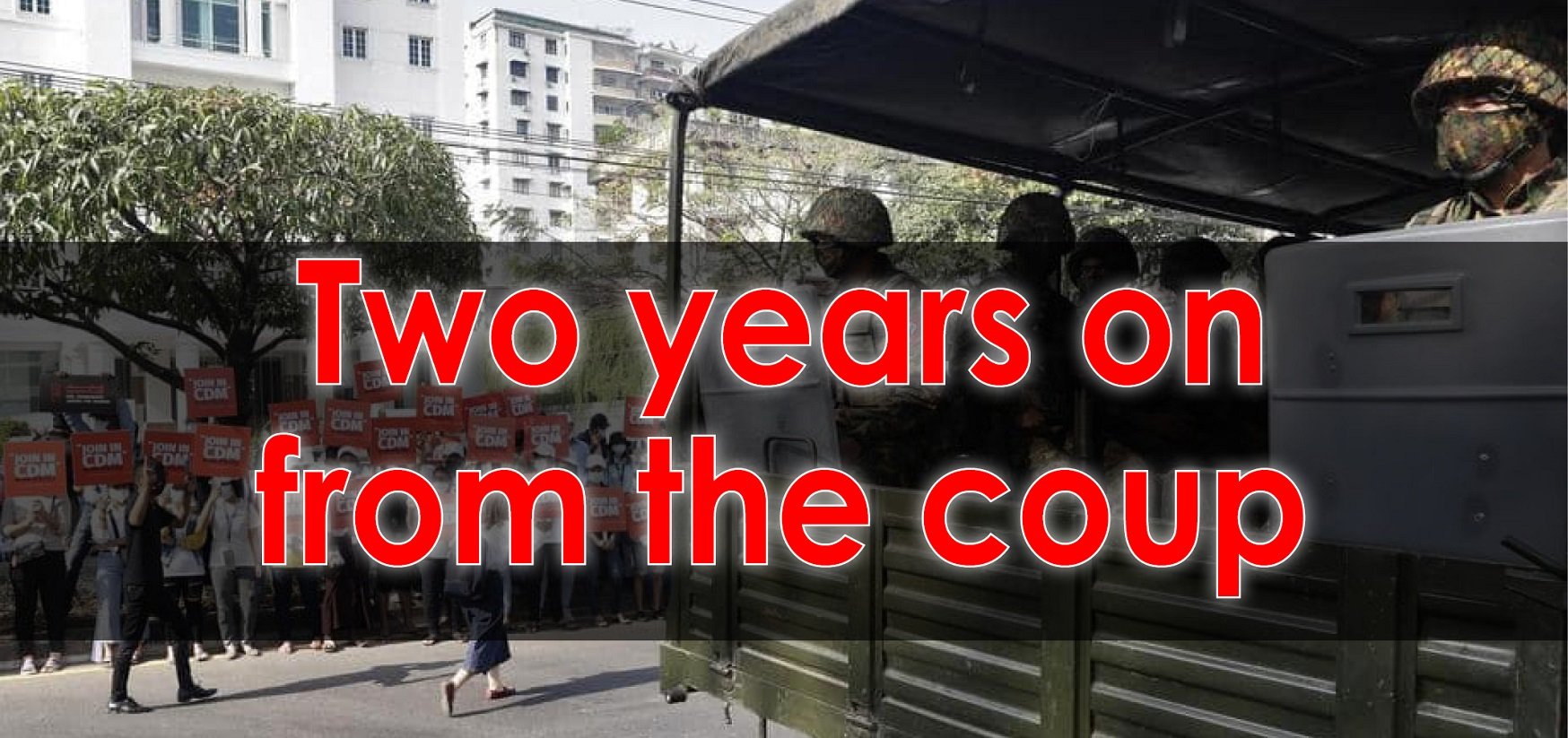Two years on from the coup
Today (1 February 2023) is the second anniversary of the coup in Myanmar. It is a day to take stock, and look ahead.
Firstly, some sombre statistics:
17.6 million people expected to be in humanitarian need in 2023, up from 1 million pre-coup
2.7 million people expected to be displaced in 2023, up from less than a third of a million pre-coup
30,000 people killed due to the armed conflict since the coup
These figures are a damning indictment of the occupying junta’s management of the country since it ousted the democratically elected leaders in 2021.
Worse is to come. The junta has positioned itself, if it sees fit, to call an election in which its own party will be guaranteed a quarter of the seats before the election even begins. Law changes restrict other parties from contesting. Voters are being forced to register at gunpoint.
The way would be cleared for the coup general to become President. This is unpalatable to resistance forces who are meeting violence with violence. 2023 looks set to be a bloody year.
But national politics and statistics only tell part of the story. While Myanmar’s existential conflict rages, many young people we work with are focussing on survival, keeping their heads down, and picking up the pieces of their broken communities.
We know this because our annual scholarship application deadline was midnight last night. We have received around a thousand applications, each of which was an individual, personal story of injustice or exclusion, and a determination to right the wrongs visited upon their kin. The overwhelming picture is that things are bad, but Myanmar’s young people already have plenty of experience dealing with bad.
This is not obvious to remote observers. In the last two decades, western media coverage has only focussed on Cyclone Nargis, Aung San Suu Kyi, the Rohingya genocide and the coup. But the applications we have received list multiple other atrocities which largely go unreported.
Young people of every ethnicity tell us of family being killed, land stolen, livelihoods taken, harassment, and of physical and mental suffering. They also tell us of flooding, disease, starvation and a lack of skills or infrastructure to tackle these threats.
Most importantly, they tell us of their ideas, plans and determination to end the cycle. They experience these injustices from the sharpest end, which affords them the clearest view of what needs to change.
They tell us how training to become a public health specialist could reduce avoidable mortality from diseases such as diarrhoea. Or how public policy skills could help them connect international NGOs to get help where it is needed. Or how becoming an engineer could save lives through sustainable, disaster-resistant construction. The list goes on and on. It is inspiring.
This is the unreported story behind Myanmar: The passion of its young people to learn and create. Yet its education system is specifically designed to thwart them. The curriculum teaches them to obey without question and innovation. A third of students are not taught in their first language.
The situation is worst at upper secondary and higher education level – the levels at which young people learn professional skills which can bring about public good far beyond the person being educated. School registration is down by 40 per cent. Attendance is even lower as students avoid security forces.
Girls, especially, know that if a soldier stops you and checks your phone, he will have yours and your friends’ contact details and online profiles. This enables him to sexually harass you under threat of posting online that you are of low morals, or that you are anti-junta and your family should be arrested. This harassment is happening, right now, along with sexual crimes of much greater severity.
This is why there is unprecedented demand this year for non-state education, at upper secondary and higher education levels. Last month, the United Nations specifically noted this in their review of humanitarian needs in Myanmar.
Prospect Burma is doing its best to highlight this issue, and to meet this demand. We can only help as many of our scholarship applicants as we have funds for. Please spread the word if you can by sharing this blog.
Young people in Myanmar need support – mainly financial support. The applications we receive show that they have the drive, the energy and the social conscience to do the rest. Thank you so much for reading this blog.

